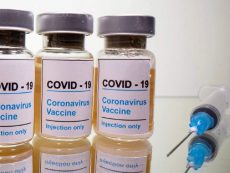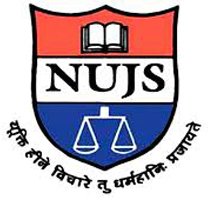Topical Highlight

Image from here
Compulsory License for Covid Drugs on the Table, Says Delhi High Court
In this post, Swaraj discusses the recent Delhi High Court order in the case of Rakesh Malhotra v. Govt of National Capital Territory of India and Others, in light of the worsening pandemic situation in India. The Court hauled up the government on various issues regarding the response to the pandemic so far, concerning oxygen use, ramping up of testing facilities, shortage of drugs and black market selling of them, bed shortages, wastage of 44 lakh vaccines(!), etc. Swaraj notes that crucially, the order directed the Central Government to ramp up production of medicines for treatment of Covid, noting the various sections of the Patent Act which allow compulsory licence / governmental use of such inventions. Quoting from the order, he highlighted the Court’s salient observations, “the best course would be to encourage the existing manufacturers to ramp up their production on a war footing. They should also be encouraged to grant voluntary licenses to other entities to manufacture the requisite drugs. However, if such efforts do not fructify soon enough, the Government/ Controller should not hesitate to invoke their jurisdiction and powers under the aforesaid provisions of the Patents Act, since the lives of thousands of people are being lost each day in the country due to COVID.”
Thematic Highlight

Image from here
A Recipe for Disaster: Export Bans, TRIPS Waiver and Hyper Nationalism
In this detailed post, Praharsh discusses the US’ stance of sharing Astrazeneca doses with Mexico and Canada while simultaneously blocking the export of necessary raw materials to India, hindering the latter’s vaccine output. He locates this within the larger context of export bans on vaccine raw materials and its implications on vaccine supply chains along with the potential benefits (and shortcomings) of a TRIPS waiver. He notes that the GATT restricts any prohibition on exports generally. However, there are exceptions to this general prohibition and Praharsh highlights that a theoretical argument can be made justifying the US’s export bans. He notes, as has been pointed out by other commentators before, that it is tough to reverse engineer and make complicated biologics like the COVID-19 vaccine unless undisclosed information (knowhow) and necessary technology to manufacture such vaccines are shared with the manufacturers. A TRIPS waiver can do only so much about it. He offers some suggestions such as extending support to initiatives targeted to improve the technology transfer and access to knowhow like the new COVID-19 mRNA vaccine technology transfer hub, and giving a new life to CTAP as well as emphasising the negotiations aimed at strengthening local production of medicines, especially with the support of government funding. One of his more ambitious recommendations concerned amending the WTO agreements to completely restrict export bans during pressing times. He concludes that what seems like an immediate solution is India’s decision to waive custom duties to improve imports of vaccines and its raw materials for three months. However, he notes that this measure will be futile if the exporting country decides to impose its own version of the export ban on these commodities.
Other Posts
Image from here
Infographic on ‘Permissible Uses of Copyrighted Books in India’ on World Book and Copyright Day
On the occasion of the World Book and Copyright Day, we shared an infographic by Pankhuri Agarwal on all our social media pages highlighting the ‘Permissible Uses of Copyrighted Books in India’ as per fair use of copyrighted books provided for under Section 52 of India’s Copyright Act. We shared this in the hopes of making users more confident of exercising their user rights relating to books without hesitation or reluctance. The Infographic in Word Version is available here.
 Seeing It Through: The Journey of the Dean of UNH Franklin Pierce School of Law
Seeing It Through: The Journey of the Dean of UNH Franklin Pierce School of Law
We also brought a guest post to our readers by UNH Franklin Pierce School of Law, sharing a glimpse of the educational and professional journey of its dean Megan Carpenter and what she views as the future of UNH Franklin Pierce’s law programs. Dean Megan Carpenter has relished the chance to build on UNH Franklin Pierce’s innovative programs in IP law and more about her insightful and inspiring journey can be found in the post.
 NUJS Webinar on ‘IPR& SMEs (Special Focus on Agriculture & Food Sector): Strengthening Bonds in Prime Times’ (April 25)
NUJS Webinar on ‘IPR& SMEs (Special Focus on Agriculture & Food Sector): Strengthening Bonds in Prime Times’ (April 25)
We informed our readers about a webinar on ‘IPR & SMEs (Special Focus on Agriculture & Food Sector): Strengthening Bonds in Prime Times’ organised by the DPIIT IPR Chair, on 25th April, 2021. When economic recovery from the fallout of COVID-19 is a priority, World IP Day 2021 shines a light on how SMEs can use their IP assets to build stronger, more competitive, and resilient businesses and create jobs. Further details regarding the event were provided in the announcement in the post.
Decisions from Indian Courts
News from India
Other News from Around the World